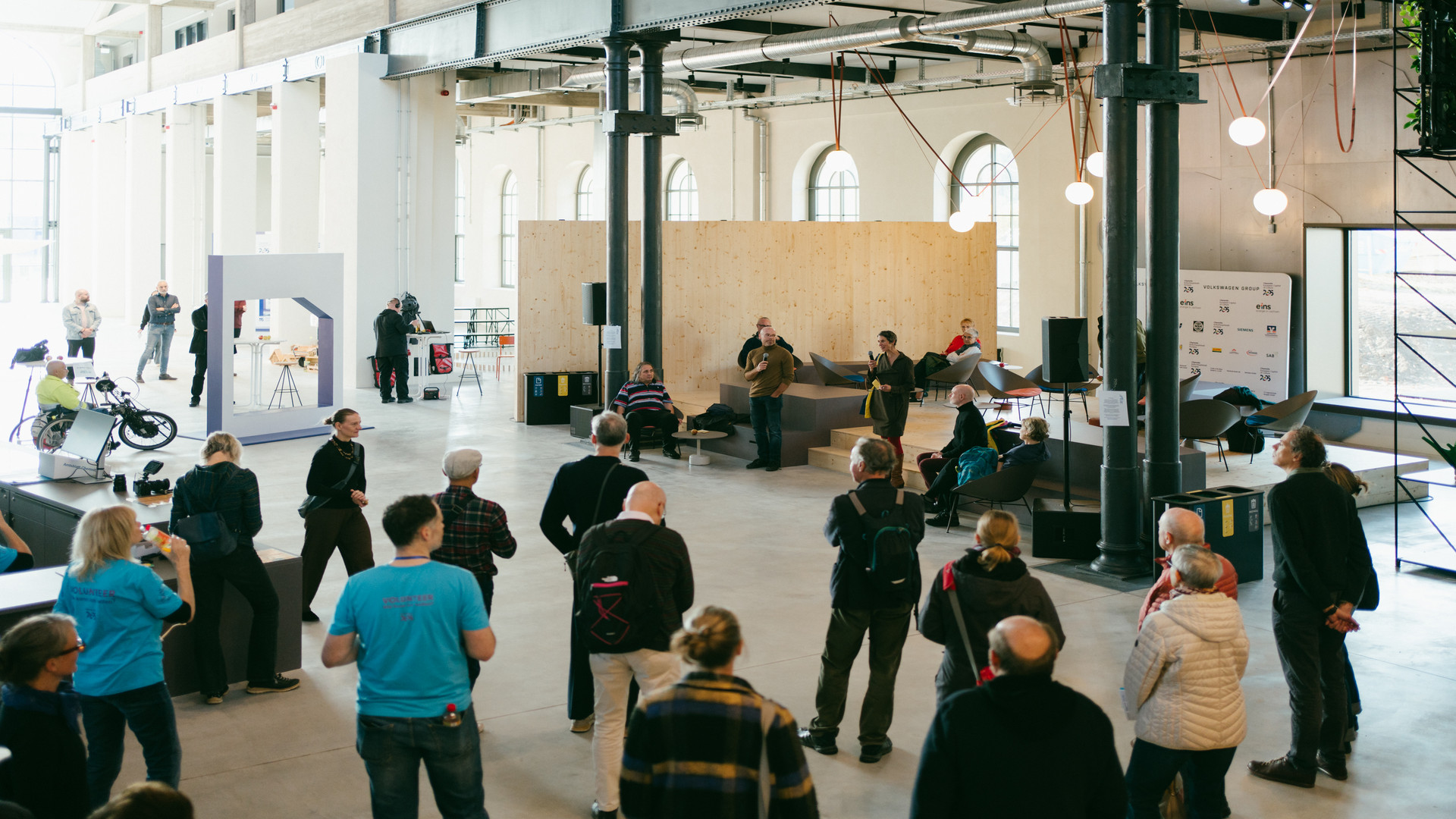What does home mean today - and who can belong to it? And how can East Germany finally be told in a more diverse way - beyond the image of an exclusively "white" East?
East Germany was and is home to many people. Even in the GDR, people from Vietnam, Mozambique, Cuba, Poland, Chile and Angola lived in the East - as contract workers, students and political refugees. After 1990, new generations of migrants and BPoC arrived. Nevertheless, their stories often remain invisible.
The aim of the 'haamit heimaten' festival and discussion is to broaden our view of this: What experiences of belonging, marginalisation or rootedness exist in the East beyond the dominant narrative? How can home be rethought - as a feeling, place or relationship? And what role do memory, language and political struggles play in shaping a new and pluralistic East German concept of Heimat?
On the podium:
- Lydia Lierke, Offener Prozess - Documentation Centre on the NSU Complex
- Dr Patrice G. Poutrus, historian, University of Osnabrück
- Claudia Tuyết Scheffel, filmmaker, including ‘Lonig & Havendel’ 2025
Lydia Lierke works as a political educator in the field of migration, anti-racism and emancipation movements, with a focus on East German migration and migration history. She has been working on the NSU complex for many years and has been part of the ‘Open Trial’ team since September 2023. She is co-editor of the book ‘Erinnern stören - Der Mauerfall aus migrantischer und jüdischer Perspektive’ (Disturbing Memories - The Fall of the Wall from a Migrant and Jewish Perspective), which will be published in 2020, and a member of the post-migrant radio initiative.
Dr Patrice G. Poutrus holds a doctorate in history. He has researched and published extensively on the economic and social history of the GDR, migration and flight in both German states during the Cold War, and biographical memories of the political upheaval in the GDR and the transformation in East Germany. For several years, he was a research assistant at the Centre for Contemporary Historical Research in Potsdam and at the University of Erfurt. He was also a senior fellow at the Vienna Wiesenthal Institute for Holocaust Studies in Vienna and has held the chair of contemporary history at the Institute of History at Martin Luther University Halle-Wittenberg and the chair of comparative cultural and social anthropology of late modern societies at the European University Viadrina in Frankfurt (Oder) (EUV). Most recently, he was a visiting professor at the Centre for Interdisciplinary Women's and Gender Studies (ZIFG) at the Technical University of Berlin. Since 1 December 2023, he has been a research associate at the Institute for Migration Research and Intercultural Studies (IMIS) at the University of Osnabrück and is cooperating with the city archives of Hanover, the capital of Lower Saxony, to establish an immigration archive.
Claudia Tuyết Scheffel was born in Chemnitz in 1995 to a Vietnamese former contract worker and an East German father and grew up in Annaberg-Buchholz. She studied film at the University of Fine Arts in Hamburg and completed her studies with the feature film ‘Lonig & Havendel,’ which premiered at the Max Ophüls Prize in 2025. Under the same title, she is curating a Vietnamese-East German event series in October, which is part of the main programme of the Chemnitz 2025 Capital of Culture. In 2021, she published her first novel, ‘Scherben im Plateau’ (Shards in the Plateau).
Moderation: Max Czollek
haamit heimaten is part of the decentralised ↗ heimaten Festival running from September to December 2025, organised by the Haus der Kulturen der Welt Berlin. The main projects, European Workshop for Culture and Democracy and Living Neighbourhood, bring together a variety of perspectives on the concept of home in Chemnitz and the European Capital of Culture region.
